DR Congo Crisis Deepens After Fresh Clashes In Parliament
A spiralling political crisis in DR Congo saw more clashes on Tuesday in the country's trashed parliament, after which MPs supporting President Felix Tshisekedi moved to oust the majority party loyal to his predecessor Joseph Kabila.
At least three people were hurt in the second day of clashes as rival groups, including lawmakers, brawled and hurled objects before police were deployed to restore order, AFP reporters saw.
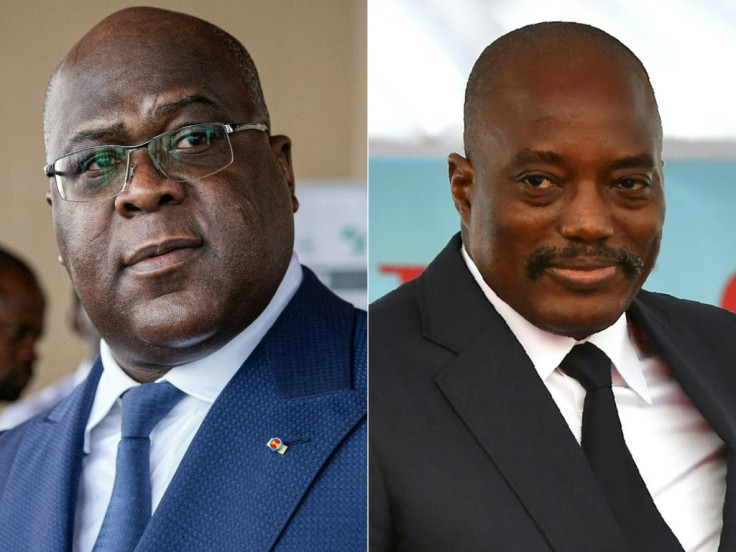
Tensions had been building for months over a fragile coalition government between Tshisekedi, who took over last year after nearly 20 years of Kabila rule, and his predecessor's party, which holds a parliamentary majority.
On Sunday Tshisekedi said he planned to form a new coalition in order to push through much-needed reforms for sub-Saharan Africa's troubled giant.
He warned he might be forced to dissolve parliament and hold fresh elections.
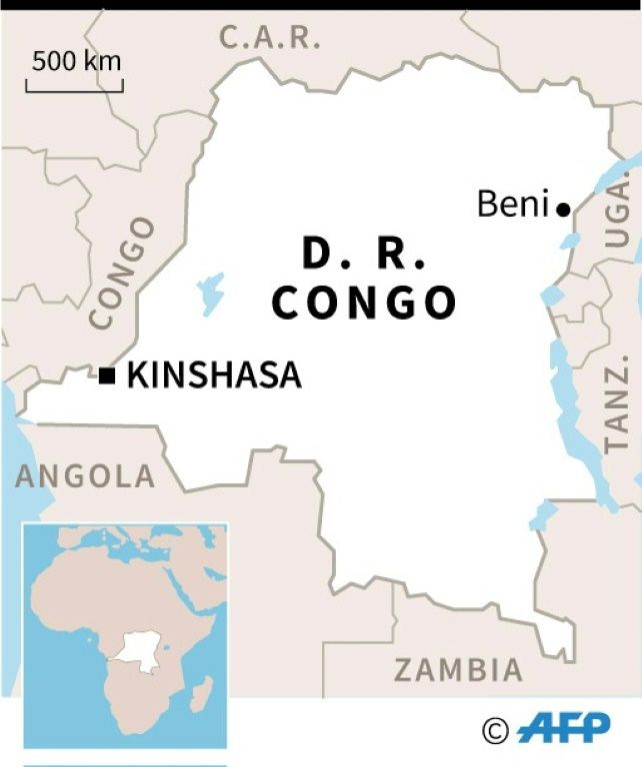
Kabila's supporters in the Common Front for the Congo (FCC), which holds more than 300 out of the 500 seats in the National Assembly, reacted furiously, accusing Tshisekedi of breaching the constitution.
After pro-Tshisekedi lawmakers on Monday trashed the assembly's podium, the plenary room was closed, even though lawmakers on both sides had called for a legislative session.
Pro-Kabila MPs holed up on Tuesday on the first floor of the parliament building, a vast 1970s Chinese-built edifice called the Palace of the People, while those of Tshisekedi's UDPS party were on the ground floor, an AFP journalist at the scene said.
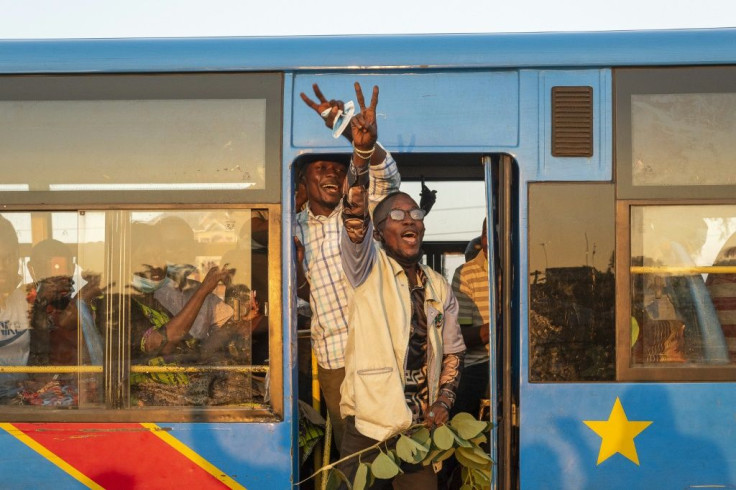
Projectiles rained down while rival groups brawled on the staircase before police intervened.
However a plenary session was held later Tuesday, in which petitions were filed for the resignation of the pro-Kabila president of the National Assembly, Jeanine Mabunda, and other members.
Mboso N'kodia Mpwanga, who chaired the session, said it was attended by 279 of the 500 MPs -- far more than the number of seats held by parties other than the FCC.
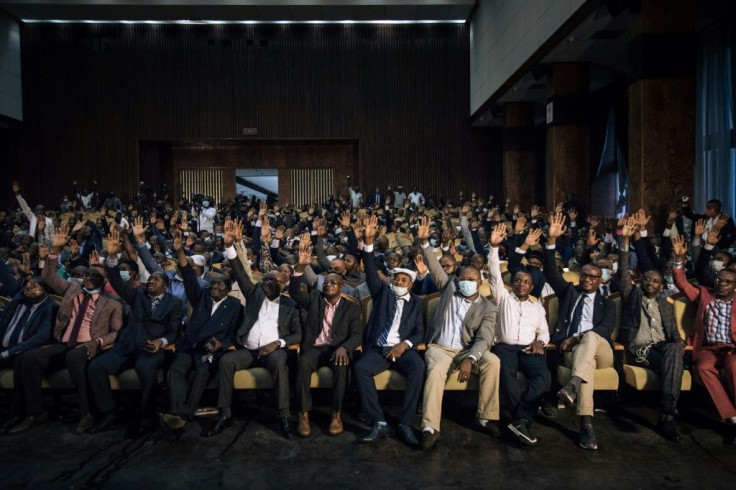
The members also voted to install temporary replacements for Mabunda and her team.
No roll call was made and Mabunda was not present for the session, which was broadcast live on state television.
"We have witnessed a parliamentary coup," pro-Kabila MP Francois Nzekuye told AFP.
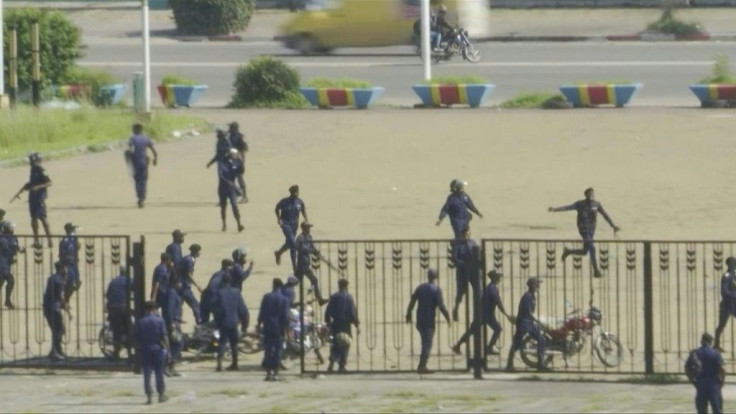
The petitions will be considered in a plenary session on Thursday.
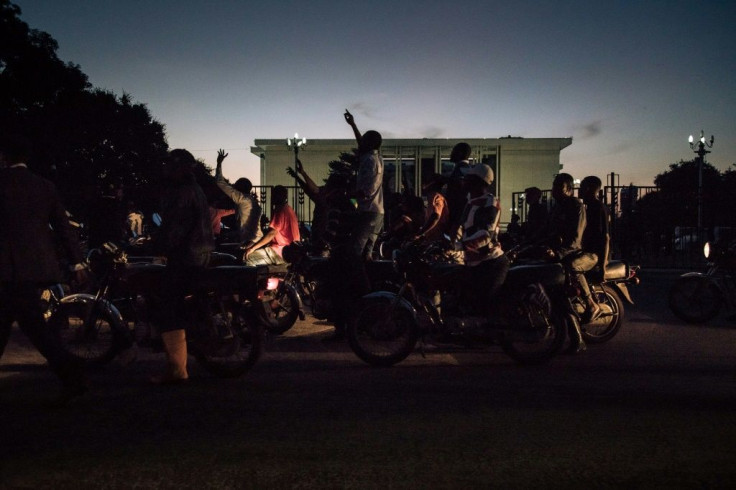
The UN Joint Human Rights Office (UNJHRO) in DR Congo wrote on Twitter late Tuesday that it "strongly condemns the violence in and around the People's Palace, which is incompatible with the requirements of a democratic society".
The tensions have sparked international alarm, reviving memories of the Democratic Republic of Congo's long record of volatility.
Coups and warfare have bloodied the narrative of the DRC since it gained independence from Belgium in 1960.
The US embassy in Kinshasa said Tuesday it took note of Tshisekedi's Sunday announcement, adding that it would "continue to support a process of reform to deliver the change the Congolese people seek".
In a joint statement with Canada, Britain, Switzerland, South Korea and Japan, it called for "all sides to maintain good faith and engage peacefully in the political process".
The African Union meanwhile called on the country's leaders to "work resolutely and sincerely for national harmony and to preserve peace and stability".
Both Tshisekedi and the legislature were chosen in much-delayed elections in December 2018 that while peaceful were tarred by accusations of fraud.
Kabila took office in January 2001, succeeding his assassinated father, Laurent-Desire Kabila.
Still only 49, he retains considerable clout through political allies and officers he appointed to the armed forces, and is also a senator for life.
The governing coalition emerged from a pact, still unpublished, between Tshisekedi and Kabila at the handover in January 2019.
But the need to share power has thwarted Tshisekedi's long-standing pledge to enact institutional reform and combat graft.
Tensions erupted into the open in July, when he named three new justices to the top court, the Constitutional Council.
The FCC angrily protested and boycotted the judges' October swearing-in ceremony.
Two days later, Tshisekedi revealed the scale of discord with the FCC-dominated government.
These talks culminated in Sunday's announcement of the search for a new government lineup, and the threat to dissolve parliament.
© Copyright AFP {{Year}}. All rights reserved.





















